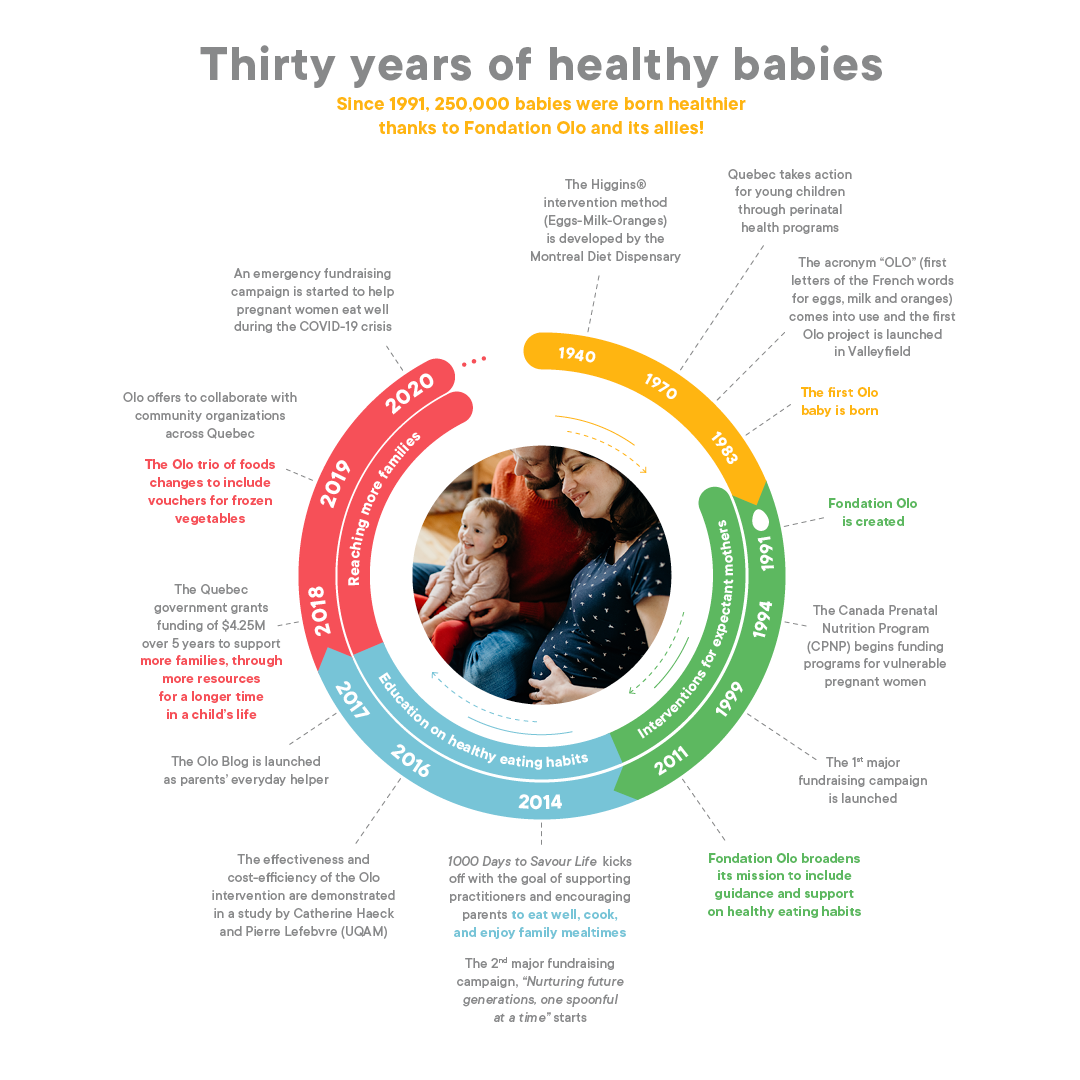While Fondation Olo was officially established in 1991, the story of its nutritional approach began long before.
Back in the 1940s, dietician Agnes C. Higgins developed a nutritional intervention process adapted to the needs of pregnant women living in low-income situations. The Higgins approach combined individual postpartum follow-up by dieticians from the Montreal Diet Dispensary (MDD), along with Olo foods (i.e. eggs, milk, orange juice, vitamins and minerals). This quickly proved itself of value with participating expectant mothers. Studies published in scientific journals have established a 50% reduction in the number of babies born with a low birth weight.
The Olo program within Quebec’s CLSC network
When perinatal care practitioners in the Valleyfield region learned about the MDD’s approach in 1982, they came up with the idea for the Olo program, an initiative that would then mobilize several other CLSCs across the province.
Fondation Olo
In the early 1990s, to ensure the Olo program’s long-term viability, the CLSCs joined forces and set up a foundation whose main objective would be to raise the necessary funds to purchase and distribute Olo foods. These foods were—and are still—given by CLSC workers to pregnant women living in poverty, as part of a nutritional program to reduce the number of low-weight births. To date, and as a result of this community mobilization, Fondation Olo has contributed to the health of over 250,000 babies.
Today, Fondation Olo’s name continues to pay tribute to the importance of this preventive approach
In 2011, Fondation Olo’s mission was expanded to target the adoption of healthy eating habits during the first years of children’s lives. Eating well, cooking, and eating together as a family became the pillars of the approach used before and after the birth of a child. While Olo foods continued to be distributed to meet the urgent needs of unborn children, activities were developed to build the knowledge and skills of parents and professionals.
Gradually, tools for parents appeared, including brochures with low-cost recipes, a meal preparation tool and two books for babies, as did tools for practitioners, including reference documents, a community of practice, and accredited training offered online.
These achievements were part of the 1000 Days to Savour Life project, which was made possible through support and financing from Avenir d’enfants and Québec en Forme.
The full history of Fondation Olo
For more information, read the full history of Fondation Olo (in French only) to learn more about:
- Montreal Diet Dispensary: Where Olo originated
- Mobilizing the health and social services network
- The birth of Fondation Olo
- CLSC, CSSS, CISSS and CIUSSS
- Community organizations
- An intervention that’s known and implemented across Quebec
- A broader mission for Fondation Olo
- 1000 Days to Savour Life: A large-scale project to realize a vision
- Proof of Fondation Olo’s impact
- Fondation Olo turns 25!
- The future
* Please note that this document covers our history up until 2018 and will be updated shortly with more information on our third chapter, which notably enabled us to support more families, through more resources for a longer period in a child’s life.

